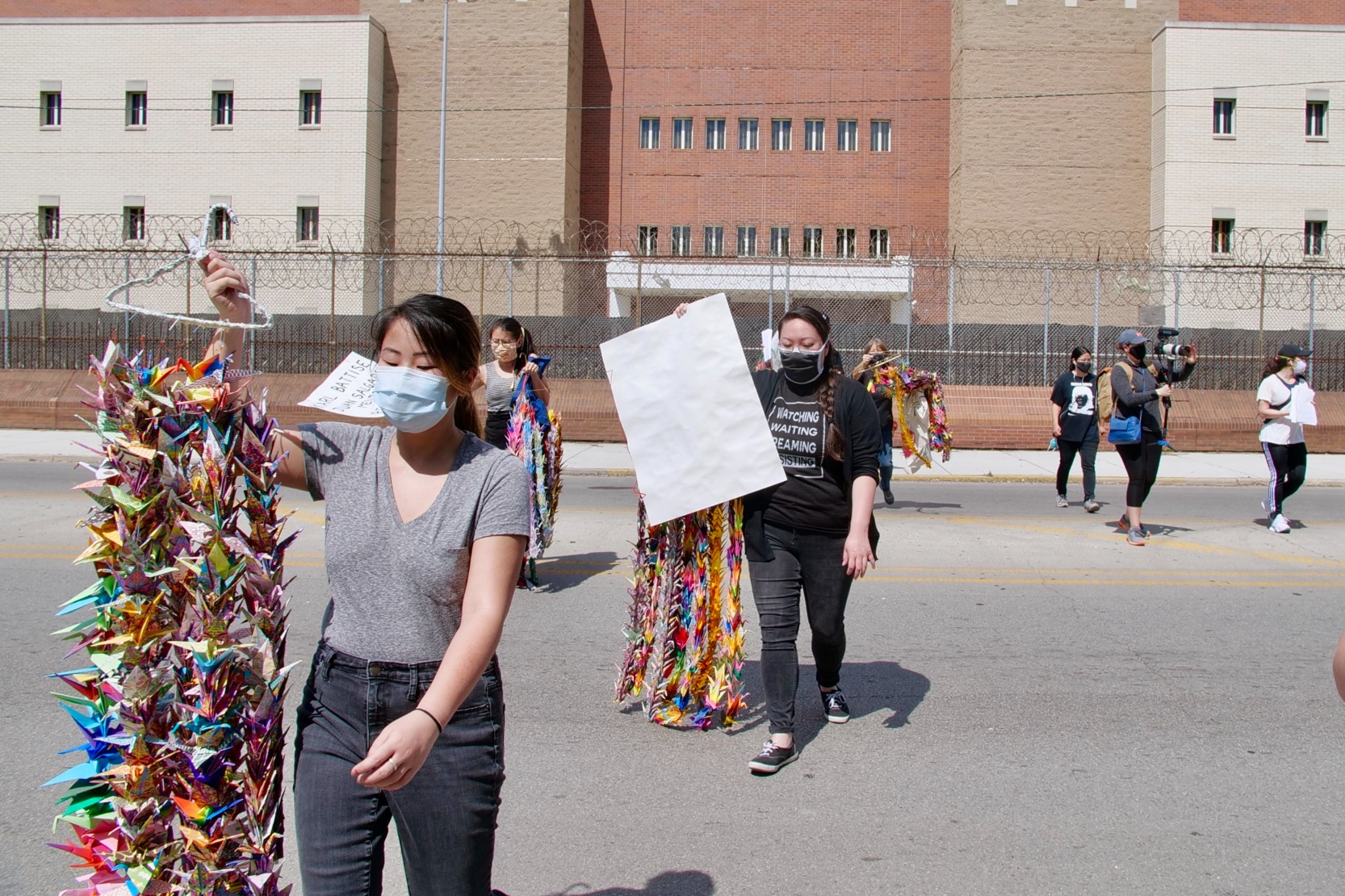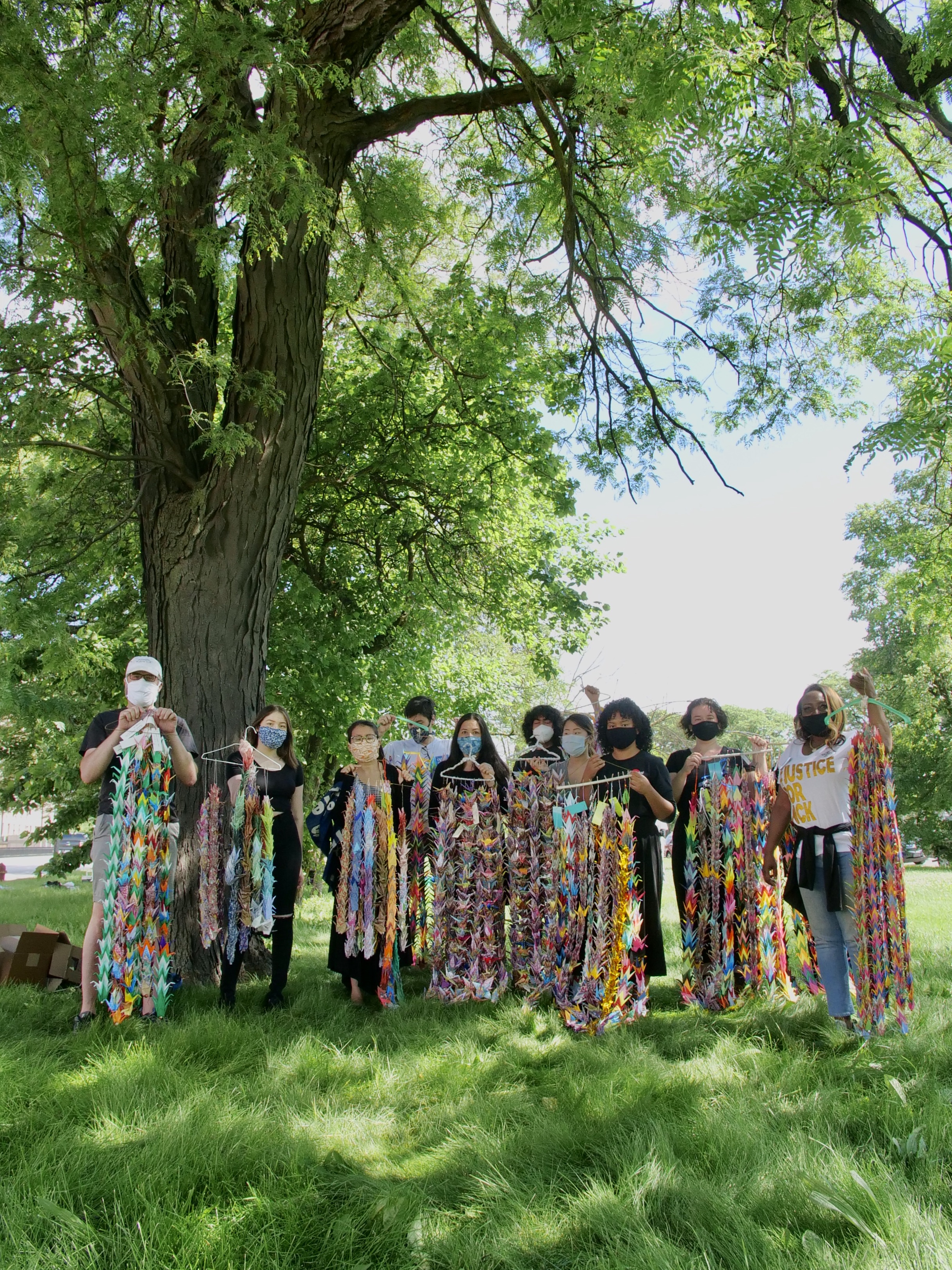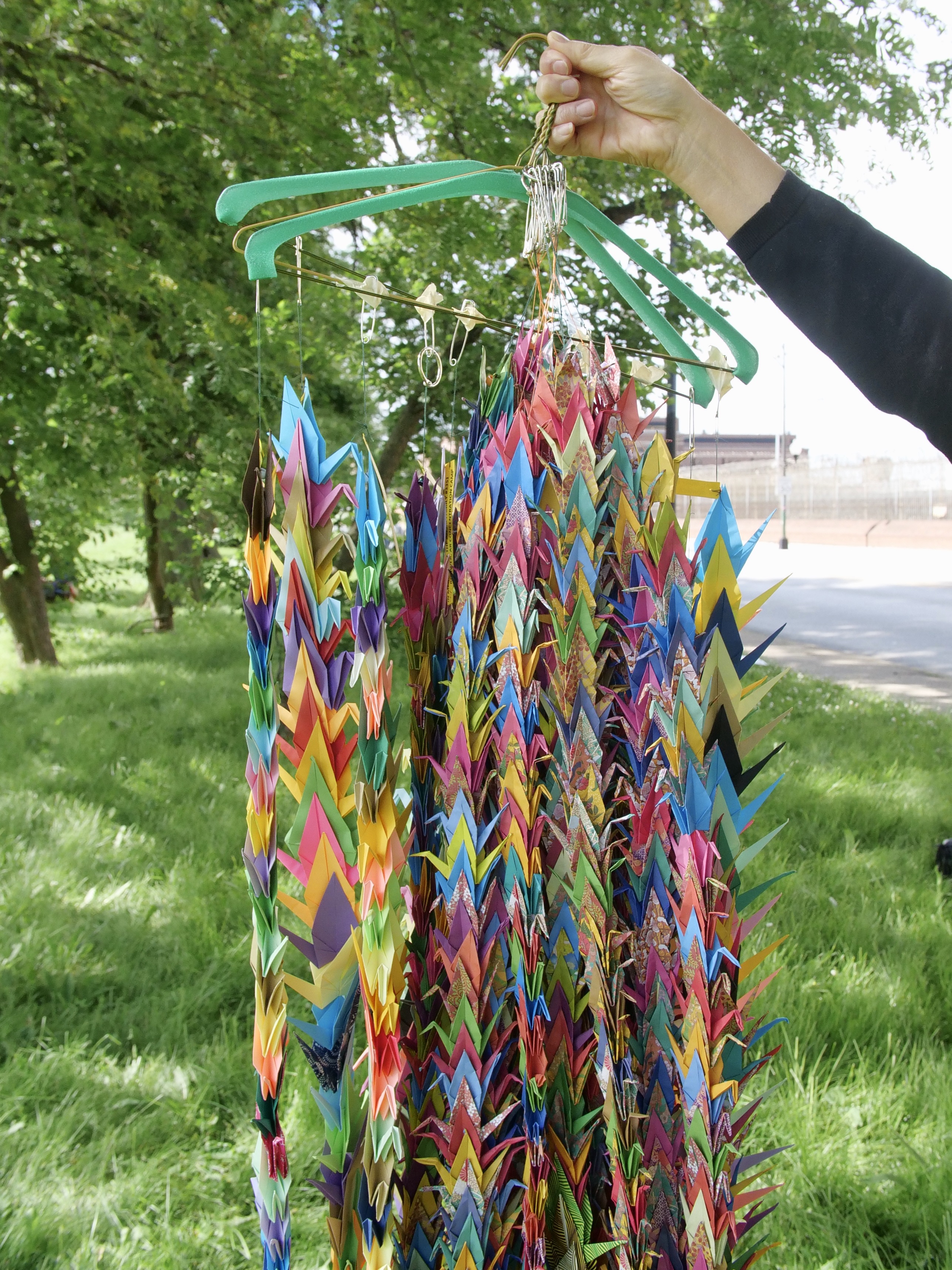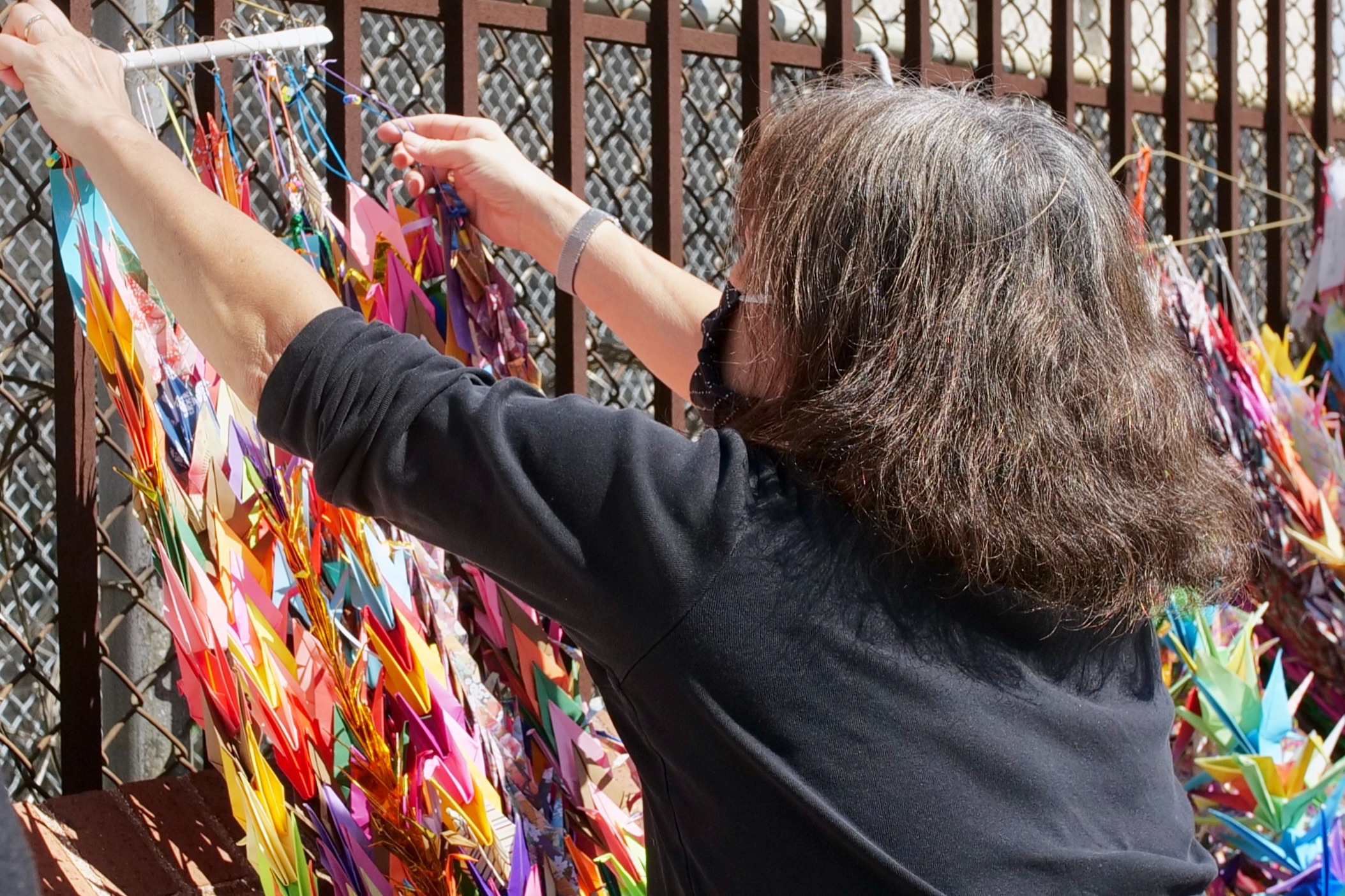Japanese Americans Hang Paper Cranes At Cook County Jail To Protest Mass Incarceration And Police Brutality
By Katherine Nagasawa

Japanese Americans Hang Paper Cranes At Cook County Jail To Protest Mass Incarceration And Police Brutality
By Katherine NagasawaOn Sunday morning, several dozen members of Chicago’s Japanese American community converged in front of Cook County Jail to protest mass incarceration and police brutality towards black and brown people.
The demonstration was part of a national social justice movement called Tsuru for Solidarity, which was supposed to host a protest of more than a thousand people this weekend in Washington, D.C. to demand the closure of ICE detention facilities. Because of the coronavirus pandemic, the summit was cancelled and, instead, cities across the country held actions connected to issues in their local communities.
Organizers of the Chicago action said they chose Cook County Jail because they felt the Japanese American community’s experience with mass incarceration during World War II holds lessons for how to handle the coronavirus outbreak in the jail, where seven people have died after contracting COVID-19 and hundreds of inmates and guards have been sickened.
“We saw what was happening, and it really reminded us of how many people in the World War II incarceration camps died because of medical neglect,” organizer Anne Watanabe said. “We really want as many people as possible to be released to prevent more loss of life, especially in a system where so many people are incarcerated just because they can’t afford to pay bail.”



Watanabe also said that, in light of national protests around George Floyd’s killing in Minneapolis, the group wanted to show solidarity with the black community in calling for an end to police brutality.
“We also want to amplify the demands that so many black organizers are making right now — that the police, who have killed so many black people with impunity, are held accountable and that they’re defunded,” she said.



During the demonstration, participants hung strings of thousands of paper cranes in honor of those who died at the jail due to COVID-19, people who have been killed by police and for family members who died in the World War II incarceration camps.
WBEZ spoke to a few of them about why they decided to take part in the event.
Brandon Lee
Co-organizer
Tsuru is a crane, and cranes are a symbol of peace. And the legend says if you make a thousand cranes, your wish will be granted. And we’re wishing for freedom and justice. This is a moment for Nikkei [Japanese Americans] to say that we support Black Lives Matter and that there are these parts of our history that are tied to justice for black folks today. Whether that’s saying, ‘Never again’ to mass incarceration or whether that’s saying yes to reparations in the future, this is a moment for us as Japanese Americans to say we support these movements that are ongoing.


Cassandra Greer-Lee
Widow of Nickolas Lee, who died of COVID-19
I am here to hang a crane for my husband who, I say, was murdered inside Cook County Jail. He was the third person to die after contracting the coronavirus here, and I’m out here in memory of him. I’m also out here to find justice for my husband and raise awareness about what happened to him.
Elaine Kaneshiro
Participant
I think I [fit into the] more typical Nikkei person who has followed all the rules and has done what I thought I was supposed to do to be a good person and citizen. In these last few years I’m realizing that that’s not good enough. That if one person is hurting, then we’re all hurting. And by being silent, I’m part of the problem. So I’m trying to figure out how to take a stand for justice. And it’s not always easy stepping out of your comfort zone, but I have to if I’m going to learn and support others.






Eric Langowski
Participant
Langston Hughes was a columnist for the Chicago Defender during World War II, and he really was the most prominent person saying, ‘We’re all in the same boat’ in terms of the oppression against African Americans and Japanese Americans being put in concentration camps. I could count on one hand the number of individuals and institutions that defended us during WWII. I think that’s really the primary reason that Nikkei are here today. We identify now that we have the ability to clearly frame to Americans, especially white Americans, that our incarceration was wrong. And with that moral authority, we know that the incarceration that’s happening to African Americans today is wrong.
Anne Watanabe
Co-Organizer
As a community that’s really been shaped by being representatives of the ‘model minority’ and having our story used in order to oppress black and brown communities, I think it’s especially important for us to show up and choose something besides that story.


Jami Nakamura Lin
Participant
I hope the takeaway is that we as the Japanese American community can come together and be like, ‘This is our story and this is how our story connects to all these other stories.’ That incarceration … of Japanese Americans, incarceration by ICE, incarceration of black Americans, police brutality against black Americans — these are all connected in different ways and that’s why we should care about this.

